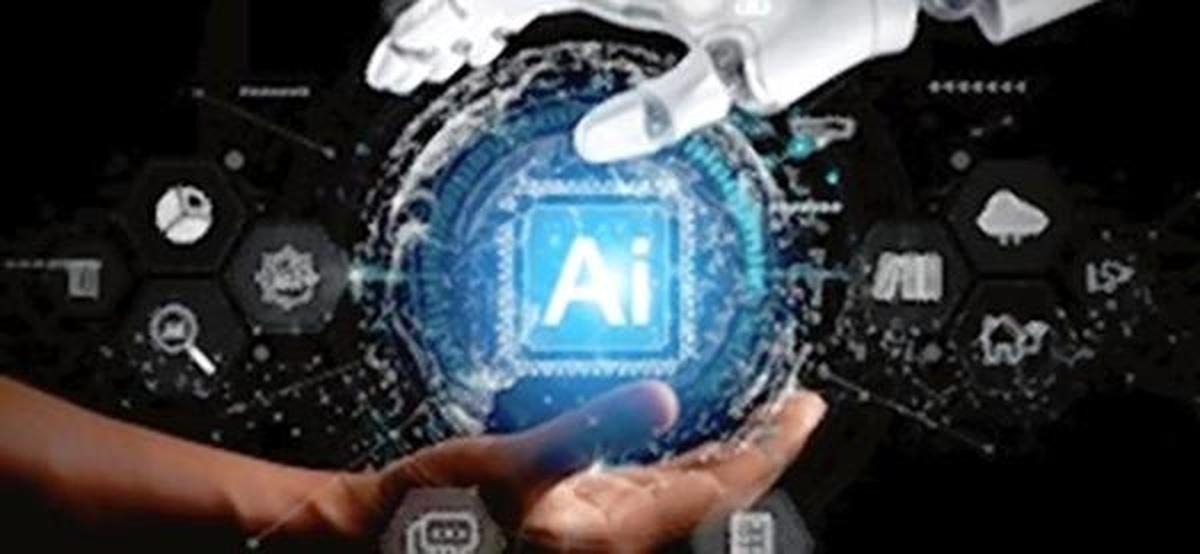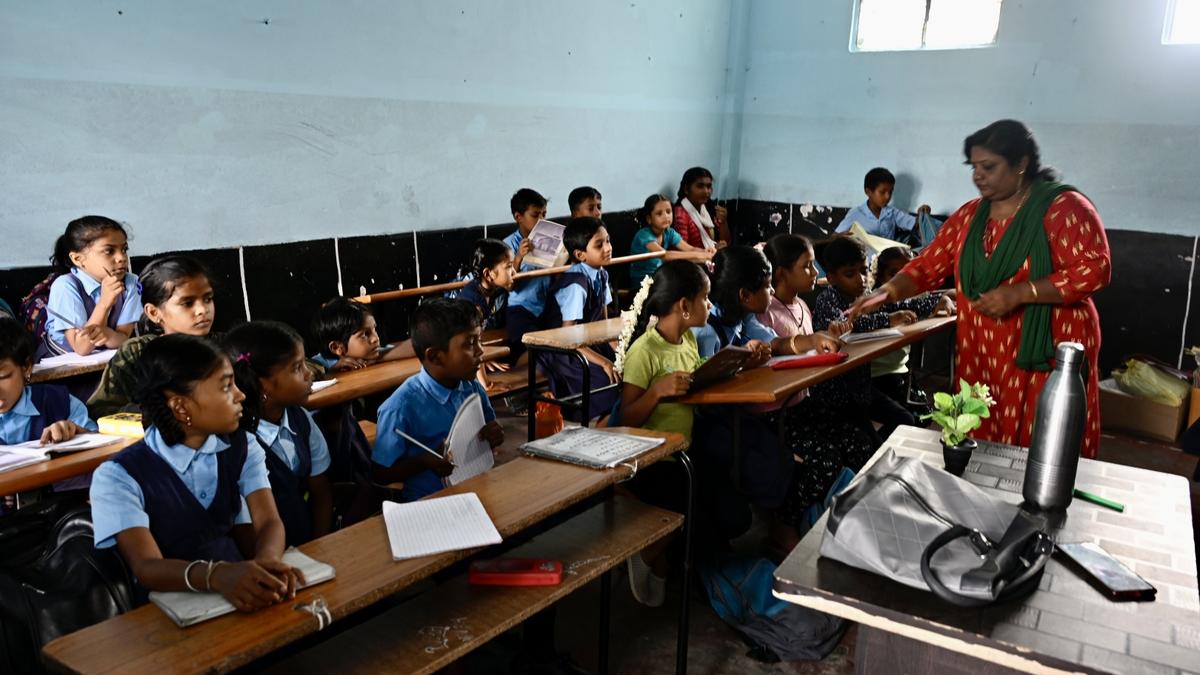On a crisp Monday morning in Bengaluru, the hum of innovation filled the state education department headquarters as Chief Minister Siddaramaiah unveiled “Kalika Deepa,” an ambitious artificial intelligence-powered learning platform designed to revolutionize classroom learning across Karnataka. Blending technology with inclusivity, the initiative marks one of the state’s most significant education reforms in recent years, aimed at strengthening proficiency in mathematics, English, and Kannada—the three pillars of foundational learning.
Kalika Deepa, literally translating to “Lamp of Learning,” has been conceptualized as both a digital teacher and an empathetic learning companion. Using adaptive algorithms, the platform diagnoses each student’s strengths and weaknesses and tailors lessons accordingly. It can switch from teaching fractions in mathematics to grammar correction in English or vocabulary building in Kannada—all with an intuitive interface accessible even in rural schools with limited resources.
“This is not just a program; it’s a leap into the future of equitable education,” Siddaramaiah declared, as ministers, teachers, and student representatives gathered to witness the launch. “Every child, regardless of background, deserves an equal opportunity to understand and excel. Kalika Deepa will bridge that gap.”
The Chief Minister’s emphasis on inclusion was deliberate. Karnataka, with over 77 lakh students in government and aided schools, has faced persistent challenges in post-pandemic learning recovery. While the Kalika Chetarike initiative bridged classroom gaps temporarily, educators struggled to maintain uniform progress across regions. The new AI-powered model, they believe, could transform how learning continuity is managed—turning what was once manual remediation into personalized digital engagement.

From Chalkboards to Code: A Classroom Transformation in Motion
At the heart of Kalika Deepa lies a simple principle—that technology can adapt where the human system often cannot. Built through collaboration between the Department of School Education and private AI partners, the platform uses real-time analytics to monitor student comprehension. Teachers receive individual learning dashboards showing which students struggled with certain concepts and how much time they spent revisiting each unit.
For instance, if a class of seventh graders in Hubballi shows collective difficulty in handling fractions, Kalika Deepa triggers reinforcement content—animations, interactive quizzes, and voice explanations—in both English and Kannada. When similar confusion arises in language studies, the system reads student responses aloud, identifies pronunciation errors, and provides instant feedback. The AI’s multilingual recognition module allows even first-generation learners to engage without language barriers.
Officials claim the tool will initially cover 1,500 schools across 14 districts before expanding statewide. Tablets and smartboards are being distributed under phase one to ensure that infrastructure bottlenecks do not undermine intent. The state has earmarked a dedicated technical fund, drawing partly from CSR partnerships with technology firms.
Within classrooms, reactions to early trials have been encouraging. At a pilot session conducted in Hassan district, teachers observed a 23 percent increase in participation when AI-driven modules replaced conventional worksheet drills. “Students get excited about the avatars and games. But behind the fun, actual learning happens faster,” said mathematics teacher Nalini M., smiling as her pupils competed to solve digital puzzles. “AI doesn’t get tired or impatient—it repeats as often as a student needs.”
Children, too, appear smitten. Eleven-year-old Manvitha from Shivamogga chuckled as she recounted her favorite feature: “Kalika Deepa talks to me like a friend. It even helps me find the right Kannada words when I forget them.” For educators long battling uneven attention spans and absenteeism, this spark of curiosity promises the return of joy to classrooms.
Yet, officials caution that the platform does not aim to replace teachers but to empower them. “The soul of education is still human,” said Primary and Secondary Education Minister Madhu Bangarappa. “AI is here to supplement—not supplant—the art of teaching. It provides insights no one teacher could gather across hundreds of students daily.”
Beyond classroom convenience, Kalika Deepa also plays a governance role. Policymakers can use aggregated anonymized data to identify learning trends, evaluate curriculum relevance, and detect regional disparities. For the first time, education data will guide reforms bottom-up instead of through guesswork or isolated examinations.
Equal Light for Unequal Realities: The Human Impact
While Bengaluru celebrates technological progress, the real test of Kalika Deepa lies deep within Karnataka’s hinterlands. In places like Raichur, Chamarajanagar, and Vijayapura, where digital literacy remains minimal and connectivity unreliable, teachers are cautiously optimistic. For them, this initiative represents a promise long delayed—a bridge between rural classrooms and quality education once confined to private institutions.
District Education Officer N. Ravi, overseeing operations in Bagalkot, described the program as “perhaps the first time children in government schools will get tools as advanced as those in elite city schools.” The device kits being shipped include pre-installed offline modes allowing interactive features even without internet access. Once connected, student progress automatically syncs to central servers, ensuring continuous monitoring.
AI designers behind the platform say that inclusivity was their foremost challenge. “Our team had to think beyond English or tech-affluent users,” explained project lead Savitha Ramesh from the design consortium. “All interfaces exist in Kannada, and voice commands work in mixed dialects so that children from rural households—where accents vary—can still communicate effectively with the system.”
To strengthen language proficiency, Kalika Deepa employs a voice-based tutor for Kannada reading and comprehension improvement. It reads out stories, poems, and lessons aloud and encourages students to repeat them, identifying phonetic accuracy through speech analysis. For English, the software uses gamified modules emphasizing grammar correction and vocabulary expansion through storytelling. Mathematics lessons, often the most intimidating for students, turn into visual challenges using everyday objects—like mangoes or ragi units—to simplify fractions and ratios.
One of the program’s most impactful features lies in its empathy engine. If a student repeatedly struggles, the AI’s tone modulation becomes calming, offering motivational cues instead of standard alerts. “That empathetic design philosophy comes from research showing children learn faster in emotionally safe environments,” said Savitha. “It’s machine intelligence shaped by human understanding.”
The emotional resonance of the initiative was palpable during the launch event itself. Teachers from government schools across districts were invited to share testimonials. Many confessed that digital technology once frightened them, but training sessions had given them newfound confidence. A teacher from Koppal recalled, “When I joined teaching 20 years ago, I never imagined an AI tool would speak Kannada better than me,” eliciting laughter and applause from the audience.
Yet for all its promise, experts caution against complacency. Educational psychologist Dr. Sriram K. warns, “Technology enhances learning but cannot substitute the teacher’s intuition. Children need empathy, social interaction, and community—all of which no algorithm can replace.” He recommended that the program embed parental engagement modules to sustain learning beyond classrooms.

Karnataka’s education department has addressed such concerns by introducing blended learning models. Regular lessons will continue under teacher supervision, with Kalika Deepa integrated as an after-class reinforcement or home-learning tool. Students can log in from home through parents’ smartphones, while teachers monitor progress remotely. “It’s hybrid education tailored for the public system,” said an official briefing.
From a Digital Dream to a Human Revolution
By evening, as the launch drew to a close, Chief Minister Siddaramaiah lit a symbolic lamp beside the stage, signifying how both innovation and empathy must illuminate the same path. “Kalika Deepa is a reflection of Karnataka’s faith in human capital,” he said softly. “Education is the flame that burns away inequality. Technology is only the oil that sustains it.”
Behind the poetic sentiment lies a vision of structural transformation. Karnataka has long prioritized educational inclusion, pioneering mid-day meals and textbook reforms in earlier decades. Now, by embracing AI, the state aspires to leapfrog limitations of geography, language, and income. The government’s five-year roadmap predicts that every student from grade one to ten in government schools will receive access to Kalika Deepa’s ecosystem through shared devices or mobile applications.
Policy analysts view the move as both forward-thinking and politically astute. By combining progressivism with social equity, the initiative places Karnataka in the national spotlight as a model for digital learning democracies. Other states, including Kerala and Maharashtra, have already expressed interest in similar frameworks.
At the ground level, however, what stands out most is not policy but hope. Teachers describe newfound purpose in witnessing their classrooms evolve from rote repetition to curiosity-driven dialogue. Parents share relief at their children reclaiming enthusiasm once lost to pandemic disruptions. And students—those who are the true north of all educational reform—speak in simple pride: “I can learn on my own now.”
As dusk settled over Bengaluru’s skyline, the Kalika Deepa logo shimmered on a digital screen behind the stage—a softly glowing lamp forming the shape of a child’s face, half-coded, half-human. It captured everything the day had promised: that the future of learning will not be a battle between technology and tradition but a partnership between curiosity and compassion.
Kalika Deepa, in many ways, reignites what Karnataka’s education system has always stood for—not mechanized instruction, but enlightened understanding. In classrooms now brightened by pixels and empathy alike, a new generation of learners is discovering the joy of mastery not through fear of failure, but through the light of empowerment.
And somewhere in those glowing screens, amidst laughter and wonder, burns the promise that no child in Karnataka shall ever learn in darkness again.
Follow: Karnataka Government
Also read: Home | Channel 6 Network – Latest News, Breaking Updates: Politics, Business, Tech & More

